Some residents uneasy with asylum seekers being housed in Boucherville
City says they took down some offensive online comments following announcement
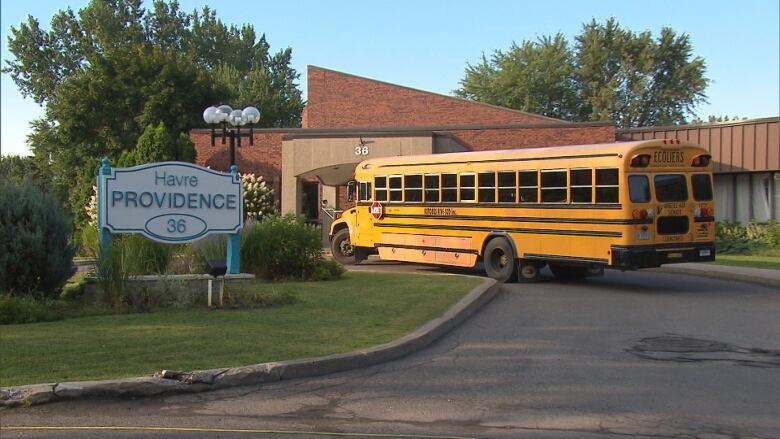
Close to 200 asylum seekers are being given temporary shelter in a former senior's home, the Havre Providence, ina quiet neighbourhood in Bouchervillea move that issoliciting mixed reaction online and in person.
The centrewas opened to help manage the influx of thousands of refugee claimants, many of them Haitian nationals, illegally crossing the U.S.-Canada border.
- 'No guarantees' asylum seekers will get refugee status, Quebec premier points out
- Half of Quebecers want to prevent illegal crossing at Canada-U.S. border: new poll
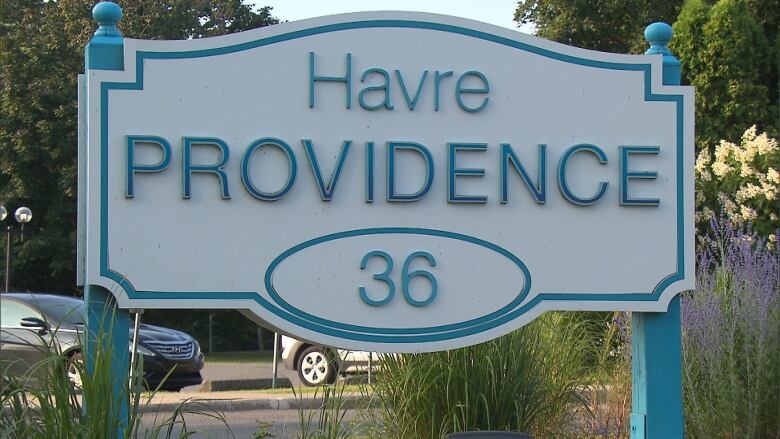
A second post on their Facebook page, published Tuesday, added thatthe cost of setting up the centre was being covered by the province and that "the city was not consulted as to the choiceof the site."
City officials later had to take down a series of offensive and even racistFacebook comments aimed at the new arrivals, saidJulie Lavigne, director of communications for the city.
"It's really mixed," she said. "It's a minority thatdoesn't want to help others."
She said there were less than 10 comments that the city decided to hide or delete online, and that most of the reaction has otherwise been positive.
Residents at odds
Linda Gauthier, who's livedacross the street from Havre Providence for 11 years, told CBC that the new neighbours don't sit well with her, adding that some are "noisy" and "not respectful."
"I'm worried," she said. "I'm always watching."
Gauthier said that if the centre stays open into next year, she might consider finding a new place to live.
She said she isn't the only person who feels this way, adding that one of herneighbours put up a homemade sign that read "Priv/Private" to keep people from walking on their property.
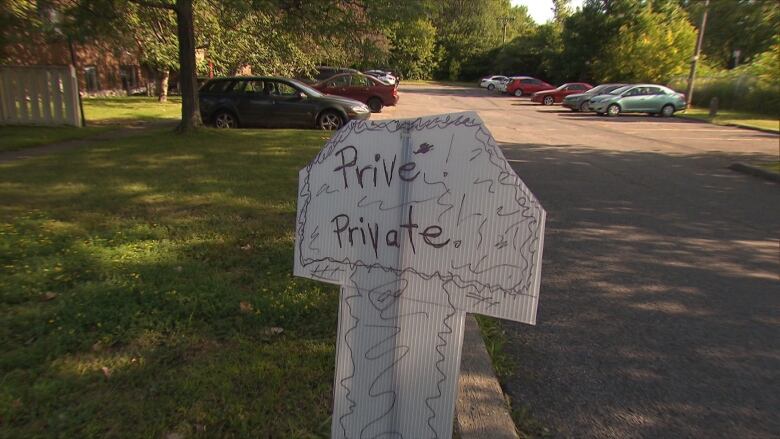
But other residents like Gilberte Hebert, who lives in an apartment across the street from the residence, disagrees.
"They seek refuge in Canada, and, well, I wish them good luck," she said.
Yvon Doraisadded that it isCanada's responsibility to helpnewcomers. He's optimistic that people who are wary of asylum seekerswill have a change of heart.
"Once they know a little bit more, they start to understand," he said.
It's not clear how long the building will serve as a shelter for the asylum seekers.
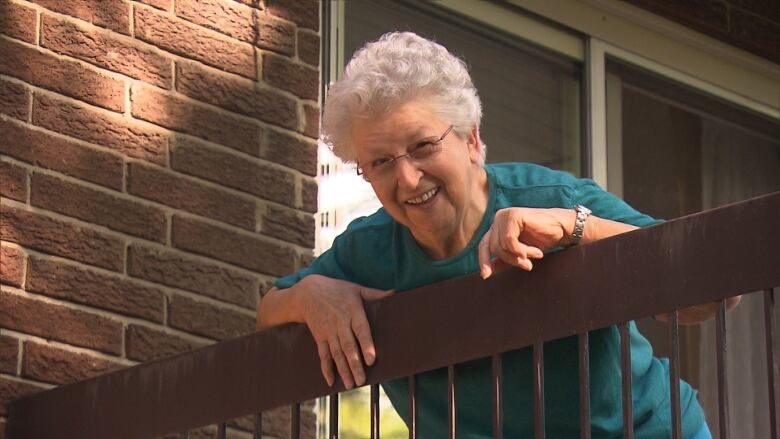
Situation under control
Marie-ClaudeBibeau, federal minister of international development, is assuring the public that the situation at the border is being managed effectively.
"It would be a crisis if it was out of control, but it's not," she told Radio-CanadaWednesday morning.
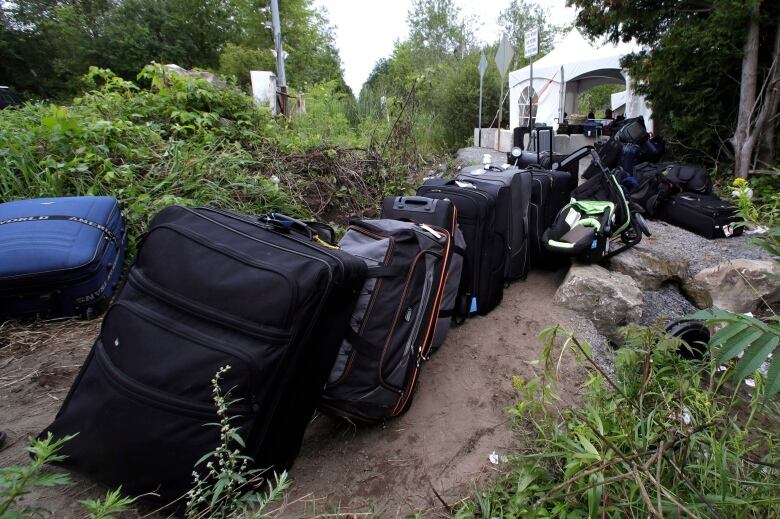
The Canadian Border Agency said last Friday thatas many as1,200 peoplewere waitingto be processed at that same crossing.
"Everyone is working really hard to collaborate," said Bibeau. "They are working long hours, their work conditions are more difficult than normal and sitll, we are managing the situation."
With files from Radio-Canada's Franois Messier












_(720p).jpg)


 OFFICIAL HD MUSIC VIDEO.jpg)
.jpg)



























































































